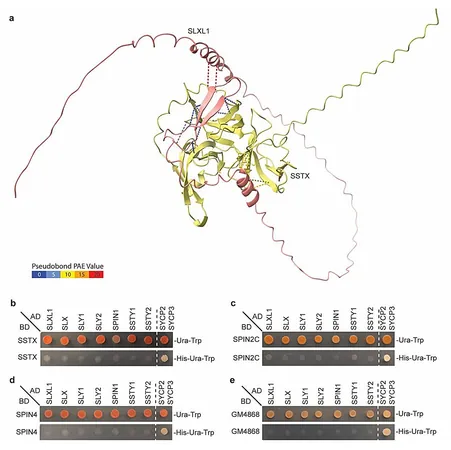
Bulgaria's Revolutionary Free Heart Disease Medication Program Slashes Hospitalizations by 30%!
2025-03-31
Author: Daniel
Introduction
Bulgaria has taken a significant step in improving the health outcomes of its citizens by implementing a groundbreaking drug reimbursement program for cardiovascular diseases, according to recent data from the National Health Insurance Fund (NHIF). This initiative has drastically reduced hospital admissions for patients suffering from heart-related issues, positioning Bulgaria as a case study in effective health reform.
Government Initiative
In a landmark decision made in April 2024, the Bulgarian government announced that it would fully cover the costs of 56 essential medications for cardiovascular diseases, providing over 90% subsidies for an additional 300 drugs. As a noteworthy result of this reform, patients are now only required to contribute a mere 50 euro cents for some of these medications, making life-saving treatments more accessible for all.
Impact on Patient Care
Key medicines for managing high blood pressure—including ACE inhibitors, beta-blockers, diuretics, and drugs from the 'sartan group'—are among those fully covered. The NHIF analysis highlights that this 100% reimbursement has enabled an additional 30,000 patients to effectively manage their cardiovascular conditions, leading to improved treatment adherence and a significant decrease in hospitalizations due to complications.
Economic Perspective
Despite the initial investment of 25 million euros over a span of nine months, the government anticipates that this 'investment' will yield a staggering economic return. It is projected that improved health outcomes equate to an economic benefit of at least 1.3 billion euros, calculated based on the average GDP contribution of a Bulgarian worker over the extended improvement in life expectancy associated with better medication adherence.
Challenges Ahead
However, Bulgaria faces unique challenges in combatting cardiovascular diseases. Although the European Commission's "Health at a Glance: Europe 2024" report indicates a general decrease in mortality from circulatory diseases across the EU, Bulgaria has lagged behind, experiencing an increase in such deaths. The mortality rate from cardiovascular diseases is up to seven times higher than in top-performing Western European countries.
Risk Factors
Contributing factors include high rates of smoking and alcohol consumption, with Bulgaria ranking among the worst in the EU for these preventable risks. With around 170,000 individuals suffering from heart failure—75,000 of whom require hospitalization each year, and 17% facing readmission within 12 months—the need for comprehensive health strategies is critical.
Healthcare Expenses
Additionally, Bulgaria has one of the highest out-of-pocket healthcare expenses in the EU, disproportionately affecting the poorest citizens. Despite the solidarity-based healthcare funding model, the burdensome costs during periods of illness or surgery often lead to catastrophic health expenses—19.2% of households experience this financial distress, dwarfing the EU average of 6.8%.
New Health Strategy
In response to these alarming statistics, Bulgaria has committed to a new health strategy aimed at reducing premature deaths by 55% by 2030. Key objectives include addressing cardiovascular diseases, which are the leading cause of early mortality, alongside enhanced treatment for cancer patients. The strategy emphasizes the need to prevent shortages of vital therapies, lower co-payments for state-funded medications, and introduce a pro-generic drug policy to foster market competition and reduce national pharmaceutical expenditures.
Conclusion
As this transformative program unfolds, Bulgaria sets a precedent for other nations grappling with similar health challenges, illustrating that comprehensive reform can lead to vastly improved health outcomes for the population. With ongoing commitment and action, Bulgaria can pave the way toward a healthier future for its citizens.




 Brasil (PT)
Brasil (PT)
 Canada (EN)
Canada (EN)
 Chile (ES)
Chile (ES)
 Česko (CS)
Česko (CS)
 대한민국 (KO)
대한민국 (KO)
 España (ES)
España (ES)
 France (FR)
France (FR)
 Hong Kong (EN)
Hong Kong (EN)
 Italia (IT)
Italia (IT)
 日本 (JA)
日本 (JA)
 Magyarország (HU)
Magyarország (HU)
 Norge (NO)
Norge (NO)
 Polska (PL)
Polska (PL)
 Schweiz (DE)
Schweiz (DE)
 Singapore (EN)
Singapore (EN)
 Sverige (SV)
Sverige (SV)
 Suomi (FI)
Suomi (FI)
 Türkiye (TR)
Türkiye (TR)
 الإمارات العربية المتحدة (AR)
الإمارات العربية المتحدة (AR)